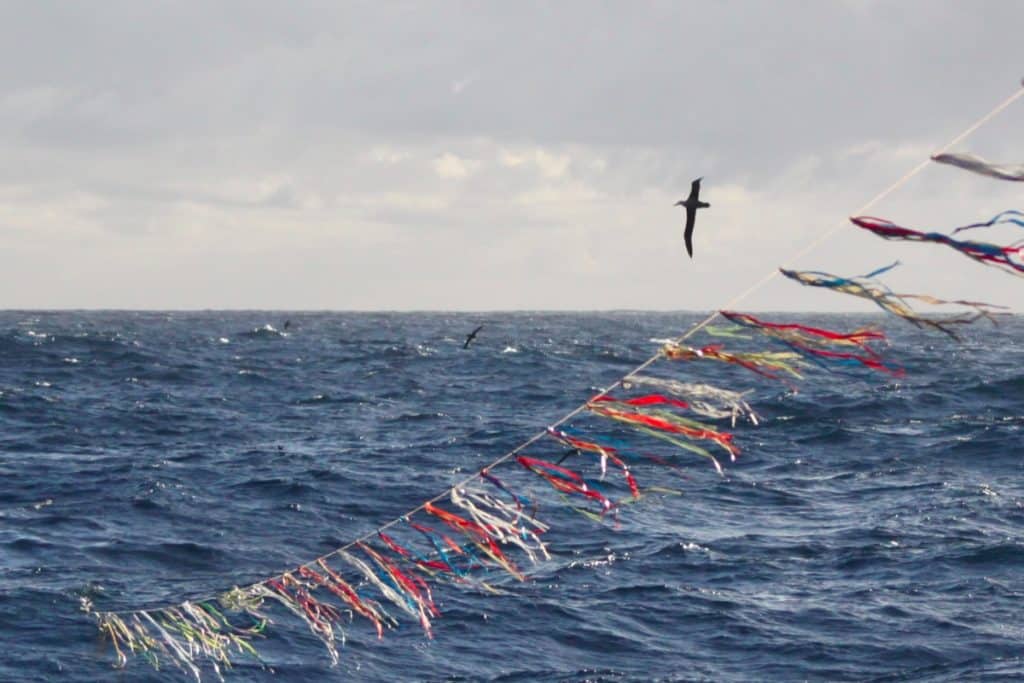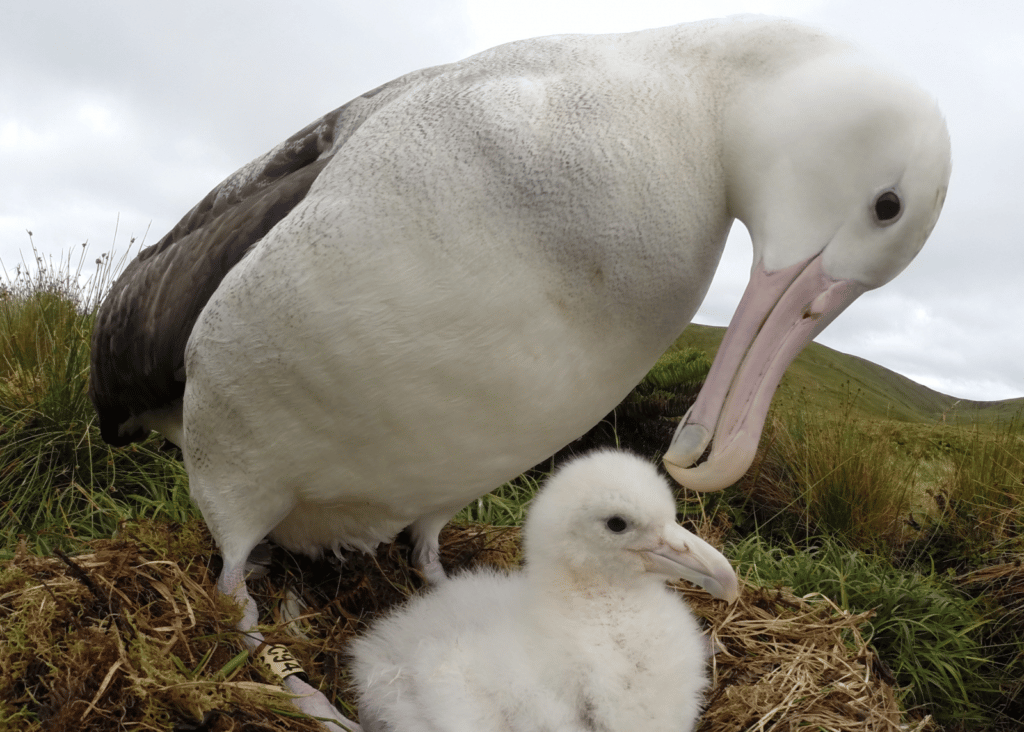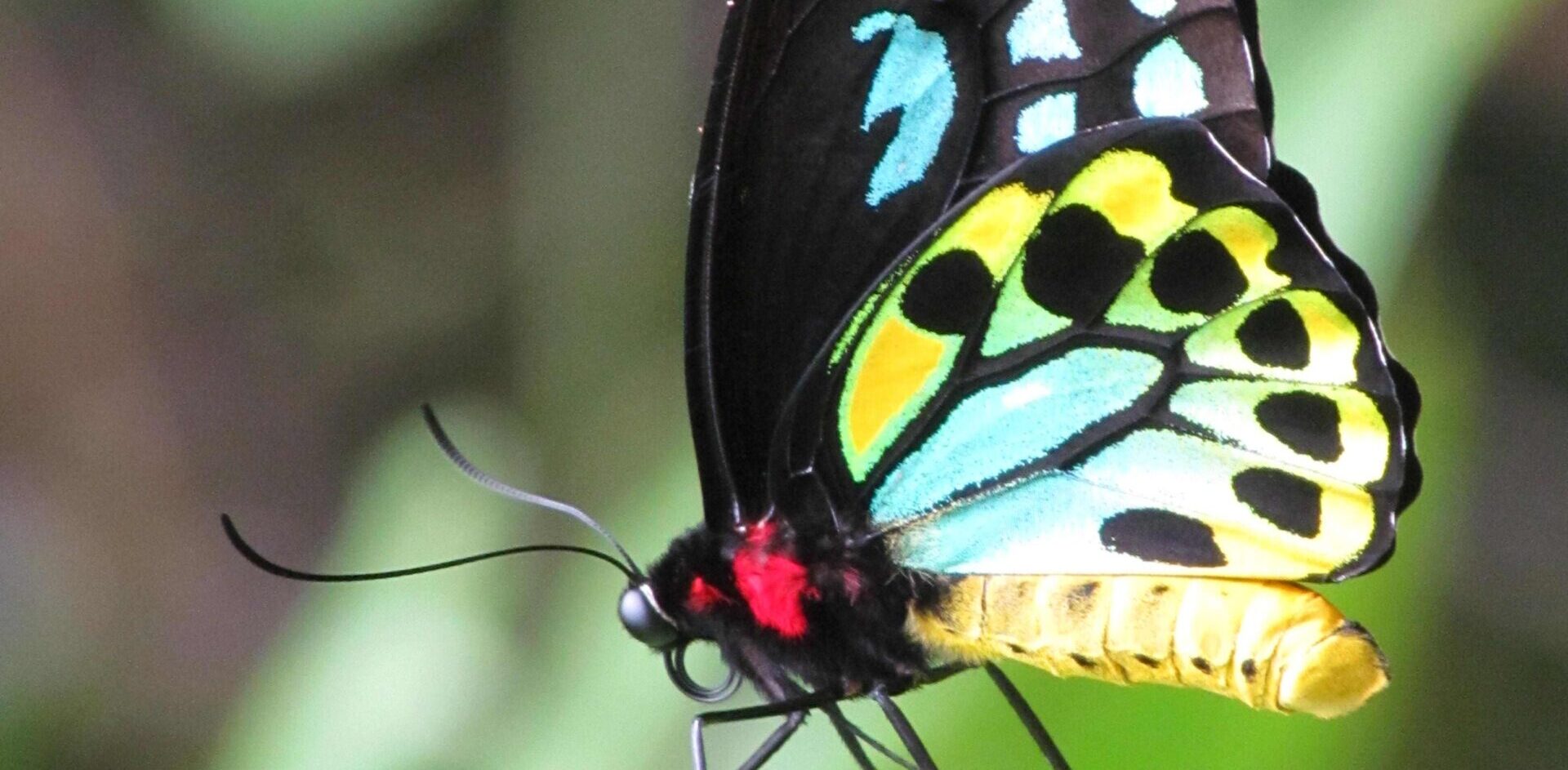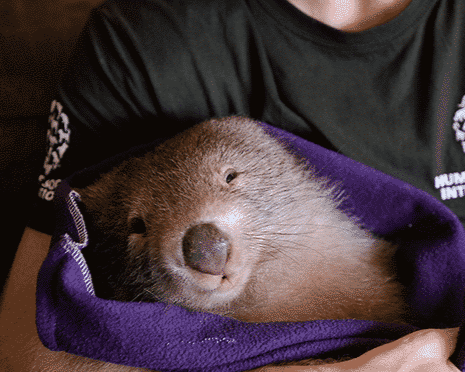The Newsletter of Humane World for Animals' Wildlife Land Trust • Issue 30 • 2025 Read More
Twenty years ago Humane Society International was at the centre of negotiations which led to the signing and coming into force of the Agreement on the Conservation of Albatrosses and Petrels (ACAP). This agreement is responsible for coordinating the activities of 13 nations in their efforts to better conserve and protect albatrosses and petrels. But the important question for us today on the inaugural World Albatross Day is, what has been done in those 20 years for albatross that gives us cause for celebration?
The albatross are the most imperilled group of seabirds. An alarming 36,000 albatrosses and petrels are estimated to drown each and every year in the Southern Ocean hooked on fishing lines. Whilst by no means the only threat, this is one that we can address. Albatrosses are facing a conservation crisis.

For more than 20 years, and for me personally more than 11 years, we have pushed and pushed countries to ensure they are using best practice measures to reduce this number. Fast sinking lines set at night are two key strategies. In some countries we are winning and less seabirds are being killed. But in all countries we can and must do much, much more to stop albatrosses dying on fishing lines.
However COVID-19 has presented us with some new challenges. Fisheries managers are cutting back on important observers on board vessels that let us know how fisheries are performing in efforts to reduce seabird bycatch. Meetings all around the globe are also being cancelled that report back on how fisheries are performing and what the latest science is saying on albatross populations. Without this vital information we risk losing momentum for action to protect albatrosses.

World Albatross Day provides us with the opportunity to shine a light on the plight of these iconic and magnificent birds. To celebrate their amazing lifelong fidelity to their chosen mate, and to the chicks the pairs raise—risking their lives travelling vast distances across the oceans in search of food to feed their family.
But also to inform ourselves about the many threats they face.
We will continue to rally fisheries worldwide to address albatross deaths and prevent the extinction of these magnificent birds, promoting simple actions to avoid hooking and drowning seabirds. However we can all help do our bit to improve the conservation of albatrosses and further reduce unnecessary deaths by keeping plastic out of the ocean.
If you would like to support our ongoing work to protect albatross, you can give here.
Alexia Wellbelove is a Senior Program Manager at the Humane Society International (HSI). She joined the organisation in 2009. With over two decades experience in conservation her current focus is environmental policy, marine conservation (particularly marine mammal and fisheries bycatch) and wildlife trade. She helped found the Places You Love alliance and serves on a number of state and federal government committees. She has represented Australia as a member of the delegations to both the International Whaling Commission (IWC) and the Convention on Migratory Species (CMS).
Photo Credits: ACAP


